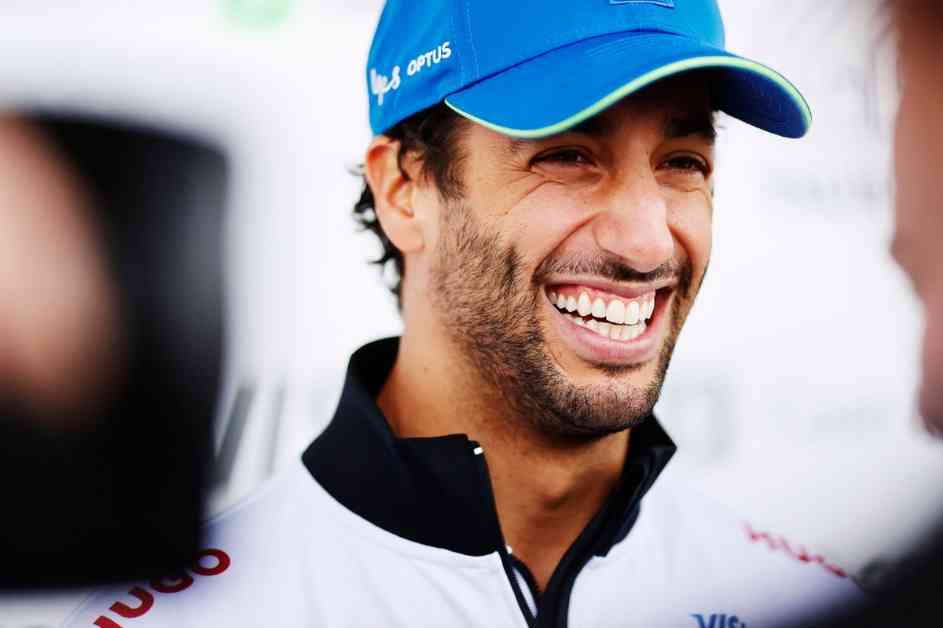Daniel Ricciardo: The Underrated Impact on F1 Success
The world of Formula 1 was forever changed when Daniel Ricciardo burst onto the scene with his infectious personality and fearless driving style. Dubbed the ‘honey badger’ for his tenacity on the track, Ricciardo quickly became a fan favorite, captivating audiences around the globe with his charm and skill behind the wheel. However, as his career took unexpected turns, fans were left wondering if the Australian driver had been short-changed by the sport he had come to love.
Ricciardo’s journey in Formula 1 began long before he was a household name. In the early days of his career, he worked as a car mechanic, a fact that endeared him to fans who saw him as a relatable figure in a sport often dominated by larger-than-life personalities. This human element was on full display in the first season of Netflix’s ‘Drive to Survive,’ where Ricciardo’s cheeky demeanor and down-to-earth attitude drew in viewers like Zoe Jewell and Hannah Hall, who would go on to launch the popular ‘Fan Behavior’ F1 podcast.
As Ricciardo’s star continued to rise, so did his impact on the sport. With Lewis Hamilton and top teams like Mercedes and Ferrari opting out of the first season of ‘DTS,’ Ricciardo found himself thrust into the limelight, becoming a connection point for new fans trying to navigate the complex world of Formula 1. His willingness to engage with American culture and media set him apart from other drivers, making him a key figure in attracting a younger and more diverse audience to the sport.
The success of ‘Drive to Survive’ and the growing popularity of Formula 1 in the United States can be attributed in part to Ricciardo’s influence. By showcasing his personality and talent on and off the track, he helped to break down barriers and bring new fans into the fold. Nicole Sievers, co-host of the ‘Two Girls One Formula’ podcast, credits Ricciardo with encouraging other drivers to show more personality and engage with fans in ways they had not before.
Despite his impact on the sport, Ricciardo’s later years in Formula 1 were marked by challenges and setbacks. His departure from Red Bull Racing in 2018 left many fans wondering if he would ever reach the heights he had achieved with the team. While his performance may have waned in recent seasons, his legacy as a fan favorite and ambassador for the sport remains strong.
The decision by Red Bull to replace Ricciardo with rookie Liam Lawson ahead of the United States Grand Prix sparked a wave of emotion among fans who felt that the Australian driver deserved a proper send-off. Many viewed the move as a missed opportunity to celebrate Ricciardo’s contributions to the sport and acknowledge his role in shaping Formula 1’s evolving demographic.
The timing of Ricciardo’s exit from Red Bull and the manner in which it was handled has left a bitter taste in the mouths of his supporters. Despite acknowledging his recent struggles on the track, fans feel that the lack of a dignified farewell for a driver who has done so much for the sport is a disservice to his legacy. The decision to part ways with Ricciardo mid-season, without a chance for fans to say goodbye, has been met with disappointment and criticism from those who have followed his career closely.
As Formula 1 continues to evolve with the introduction of new talent like Lawson and other rookies on the 2025 grid, the legacy of drivers like Ricciardo will always hold a special place in the hearts of fans. While his time in the sport may have come to a natural conclusion, the impact he has had on Formula 1 and its growing fan base cannot be understated.
In the end, Daniel Ricciardo’s underrated impact on Formula 1’s success goes beyond his achievements on the track. His ability to connect with fans, break down barriers, and bring a new generation of enthusiasts into the sport has left a lasting legacy that will be remembered for years to come. As the sport continues to grow and evolve, Ricciardo’s influence will serve as a reminder of the power of authenticity, personality, and passion in shaping the future of Formula 1.












